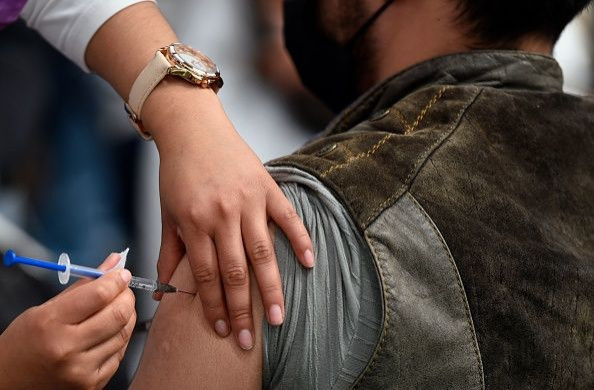New COVID-19 Vaccine Update To Target Latest Variants, Here's Why

The COVID-19 vaccines are poised for a major change this fall as the Food and Drug Administration or the FDA's scientific advisors proposed updating the shots to specifically address the newest dominant variants.
During a meeting on Thursday, the panel of advisors unanimously voted in favor of including protection against the latest strains, known as the XBB branch of the omicron family tree. The final decision will be made by the FDA, while vaccine manufacturers assured that they could develop updated vaccines within a few months, depending on the strain, according to the Associated Press.
Dr. Peter Marks, the FDA's vaccine chief, expressed concerns about a potential winter wave of COVID-19 as the virus continues to evolve and immunity wanes. To address this, the panel recommended developing a monovalent vaccine targeting one of the three circulating strains in the U.S. — XBB.1.5, XBB.1.16 and XBB.2.3 — which are sublineages of the omicron variant. This shift in approach would exclude protection against the original virus strain since experts believe it is unlikely to resurface, and its inclusion may diminish efficacy against newer strains due to immunological imprinting.
Research by Dr. David Ho, a professor of microbiology and immunology, indicated that immune responses are most effective when the immune system encounters strains it has previously encountered. Removing the ancestral spike from future vaccines can enhance antibody responses against the most relevant strains. The FDA's decision would also align with international guidelines since the World Health Organization (WHO) previously recommended targeting an XBB strain while omitting the original version.
The potential recipe change aims to adapt the vaccines to the evolving nature of the virus and ensure their effectiveness in combatting the latest variants. By focusing on the most dominant and relevant strains, public health authorities seek to enhance protection and mitigate the potential impact of future waves of COVID-19, as per CNN.
In line with their annual flu shot recommendations, the FDA has informed the public to anticipate an updated COVID-19 vaccine this fall. Despite a significant portion of the population having contracted the virus or received at least one round of vaccinations, the ever-evolving nature of the coronavirus continues to generate new variants.
Currently, the U.S. relies on combination shots from Pfizer and Moderna, which offer a mix of protection against the original virus strain and last year's prevalent omicron variants, BA.4 and BA.5. However, only 17% of Americans have sought the combined booster shots, the Associated Press pointed out.
Although the FDA authorized additional booster doses for seniors and high-risk individuals earlier this year, many people will have surpassed several months since their last vaccination by the time fall arrives. As a result, the FDA's proposed vaccine update aims to address the evolving landscape of COVID-19 and cater to the extended interval between doses for most individuals.



























